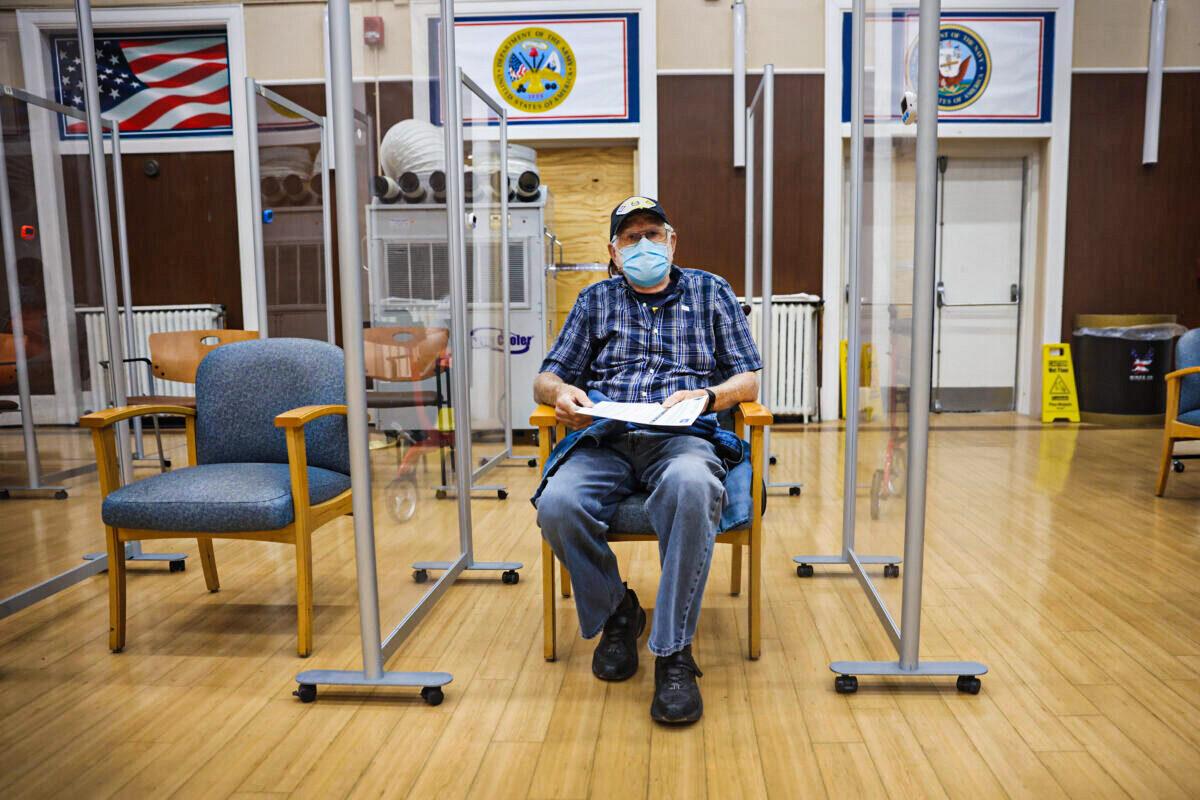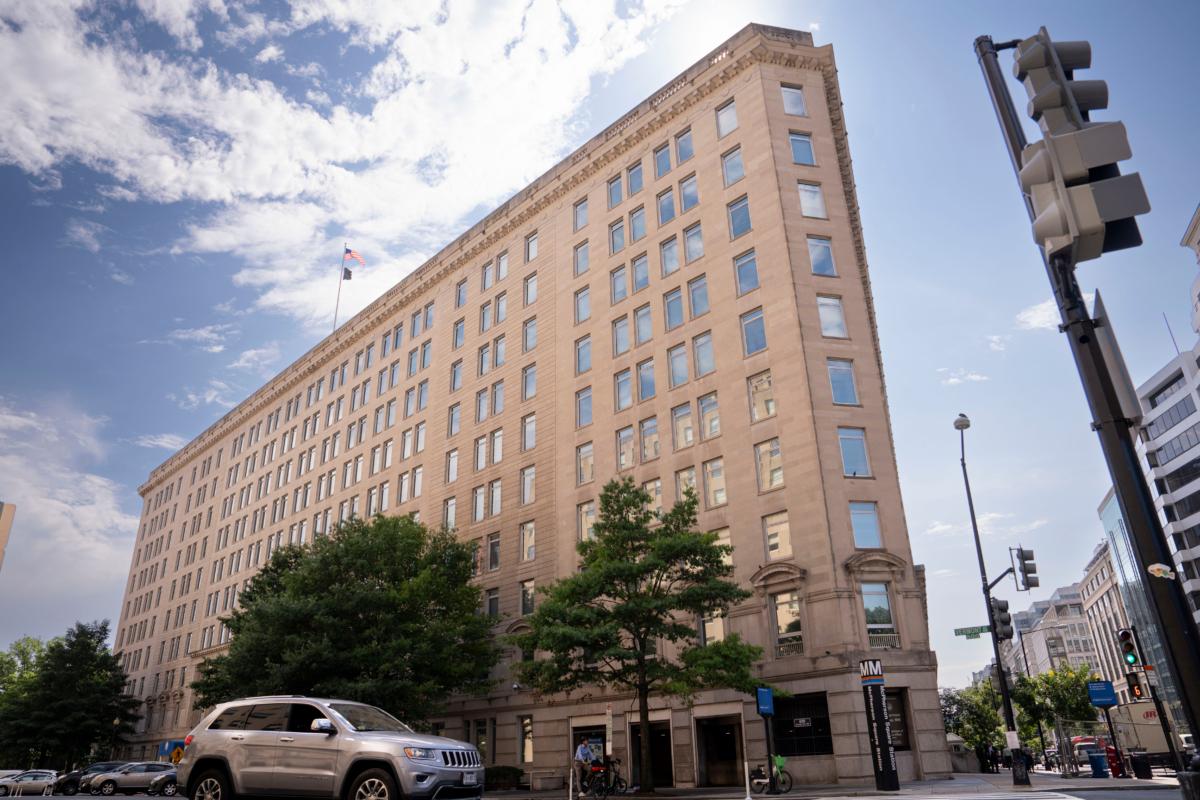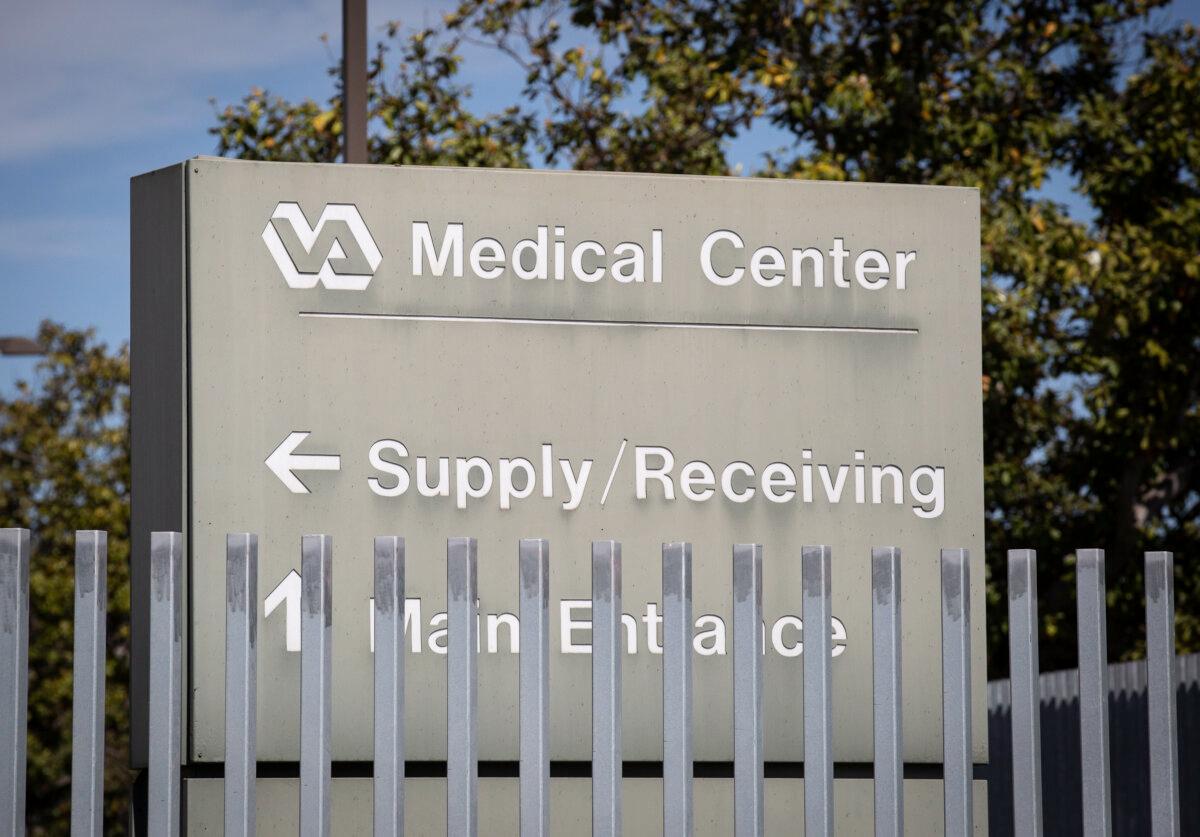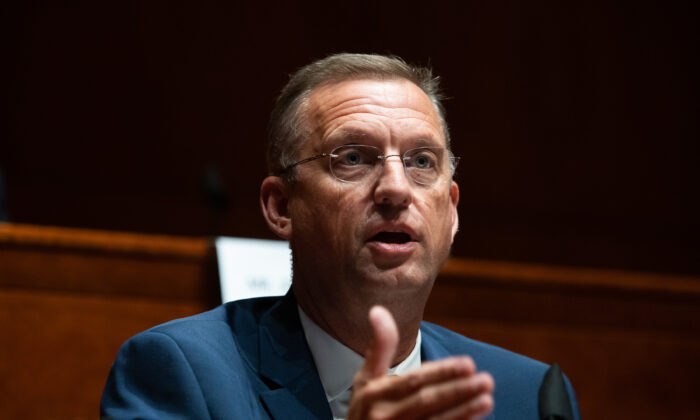The former congressman pledged the Department of Veterans Affairs would ‘put the veteran first’ under his leadership.
Doug Collins, President Donald Trump’s nominee to lead the Department of Veterans Affairs (VA), faced questions from the Senate Veterans Affairs Committee on Jan. 21.
Collins, a former Republican congressman from Georgia, was originally slated to sit for a confirmation hearing last week, but the hearing was delayed to provide the FBI more time to complete his background check.
If confirmed as VA secretary, Collins would bring years of experience as a military veteran in the chaplain service. Collins served for a time in the U.S. Navy and then returned to service through the Air Force Reserve. Collins saw a deployment to Iraq in 2008 and continues to serve in the Air Force Reserve, where he holds the rank of colonel and serves as a chaplain.
In his opening remarks, Collins noted the health risks faced by veterans of recent conflicts, such as exposure to toxins from the burn pits that deployed U.S. forces used to dispose of waste in combat zones.
“I’m an Iraq war veteran. I understand burn pits because I slept next to one for many months. I understand this generation that went for time and time and again, deployment after deployment,” Collins said.
Collins, who represented Georgia’s Ninth Congressional District from 2013 to 2021, said he has experience working in a bipartisan fashion and intends to do so as a leader of the VA.
Senators gave Collins a mostly amicable reception at the Tuesday hearing, with jokes flowing across both sides of the aisle. Their questions mainly focused on what Collins would do to improve specific aspects of the VA’s services and how he would respond to policy disputes.
1. Rural Services and Privatization
Several senators asked Collins to prioritize improving access to services in rural areas, where VA hospitals and clinics may be few and far between.
Among the measures Congress has passed to provide veterans with easier access to their health care benefits is the VA MISSION Act, which includes provisions allowing veterans to seek medical care at non-VA facilities when VA facilities aren’t available.
“For me, the intent of the MISSION Act at the end of the day was about how do we make veteran care available to the veteran who needs it and not have the battles over how they get it,” Collins said.
Collins said he also spoke with Sen. Tammy Duckworth (D-Ill.) about colocating the VA’s community-based outpatient clinics with rural hospitals, to make it easier for veterans to access medical care.
While the MISSION Act has increased access to non-VA resources, some senators raised concerns about efforts to completely privatize the VA’s role. Sen. Bernie Sanders (I-Vt.) asked Collins where he stands on the issue.
Collins said, “There’ll always be a VA health system for the veteran.” Still, he signaled he would continue to support private options in places and situations where VA care is lacking.

Sanders raised concern that private care is becoming a growing share of VA expenses and that continuing to lean into private options will lead the VA to play a shrinking role in administering veteran benefits.
“Are you willing to tell us that you’re going to fight for a strong VA in every state in this country?” Sanders asked.
Collins replied that he believes there’s room for both a strong VA, and a robust option for veterans seeking non-VA care in their communities.
2. Cost-Cutting
Collins faced other questions about what measures he might take to cut costs for VA programs. One particular issue Collins pointed to has been with implementing an electronic health records system.
“That is a program now that went too many years and cost too many billions of dollars without finding a solution, and my commitment is one of the very first priorities, if confirmed, is to get in and figure out why,” he said.
Collins also raised the prospect of reforming the process for designing and constructing new VA facilities. He pointed to the VA facility in Aurora, Colorado as an example of a costly construction project. The facility saw a 144 percent project cost increase, according to a 2018 Government Accountability Office Review.
While he noted areas for potential improvement, Collins vowed he would put caring for veterans ahead of trying to implement cost-cutting measures.
“We’re not going to balance budgets on the back of veterans’ benefits. We’re not going to do that. We’re going to put the veteran first,” he told the committee.
Sen. Maggie Hassan (D-N.H.) warned Collins will face pressure to perform the department’s responsibilities under budget constraints.
“Cutting direct care people in a health care system, cutting people who coordinate care so that veterans can get integrated care can really, really harm veterans. So I will hold you to your statement that you will stand up for veterans in the budget discussions,” she said.
3. Abortion Coverage
Several Democrats on the committee asked Collins whether the VA would continue a policy implemented by President Joe Biden’s administration, to provide abortion services for VA beneficiaries.
Following the U.S. Supreme Court’s 2022 decision in Dobbs v. Jackson Women’s Health Organization, the Biden administration took several measures to preserve access to abortion in states enacting laws to constrain the practice. In September 2022, the VA announced an interim final rule stating it would provide abortion counseling and perform abortions in cases where the life or health of a pregnant mother is in danger, or a pregnancy arises from instances of rape or incest.

In an exchange with Sen. Mazie Hirono (D-Hawaii), Collins said the 1992 Veterans Health Care Act expressly forbid the department from performing abortions. Hirono disagreed with Collins’ assessment of the law.
“There is, as you know, debate regarding what the law allows. I believe the law allows this rule to be enacted,” Hirono said.
Collins told Hirono that the VA would review the 2022 rule to determine whether it does indeed comply with the 1992 law.
“As you just said in your own answer, it is a debatable issue. We’re going to look at it and make sure that the VA is following the law,” he said.
In another exchange, Sen. Patty Murray (D-Wash.) asked whether a veteran, who lives in a state like Texas where abortion access has been restricted, and has a pregnancy resulting from rape, would be able to get abortion care at her local VA. Collins reiterated that the VA would review the 2022 rule to determine if it is consistent with federal law.
4. Accountability
Sen. Tommy Tuberville (R-Ala.) pointed to poor VA employee performances as a key contributing factor to negative views about the department. Collins offered his commitment to hold poor-performing VA employees accountable.
“If there is someone who is harming or in the way of a veteran and taking a veteran’s benefit away I have no problem in getting rid of that person and making sure we do it properly, and I have no problem with the legal repercussions,” Collins said.
Collins said he would be a cheerleader for dedicated VA employees but said the key to keeping good employees will be to set high standards.
In another exchange with Chairman Jerry Moran (R-Kan.), Collins stated, “Failing up is not a concept that I abide by.”
5. New Technology
During the hearing, Collins also fielded questions about technological advancements to improve the VA, including the implementation of artificial intelligence (AI) programs for more rapidly processing benefits claims.
Sen. Bill Cassidy (R-La.) positioned AI as a potential solution to clearing a backlog of VA claims, if the department leans into developing a quality program. Collins indicated he would look at AI and other technologies for ways to improve the VA’s processes across the board.
“Why would I be satisfied for a system that is old and outdated or non-existent, when my goal and my purpose and my mission is to take care of a veteran?” he said.

Sen. Angus King (I-Maine) urged against the idea.
“I want to make something very clear: I don’t want AI to decide if one of my veterans is entitled to the benefits they’ve earned. Period,” King said.
Collins insisted no veteran would miss out on access to benefits simply due to the system used to process their claims, but said he wouldn’t rule out ways to speed up the claims process.
“I’m willing to look at any opportunity to get their veterans benefits quicker and if that involves AI then I’m not willing to take it off the table,” Collins said.
The Senate committee concluded its questioning after about two and a half hours. The committee is scheduled to reconvene on Jan. 23 to consider whether to advance Collins’ nomination.

